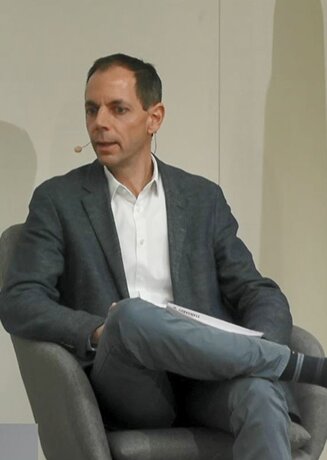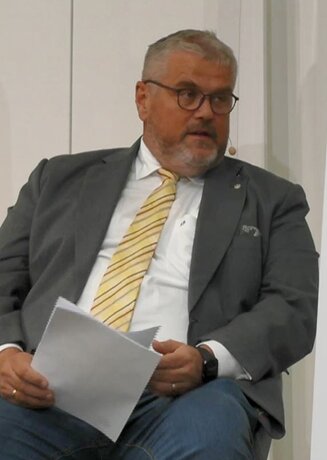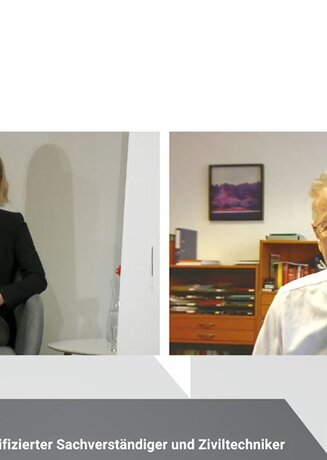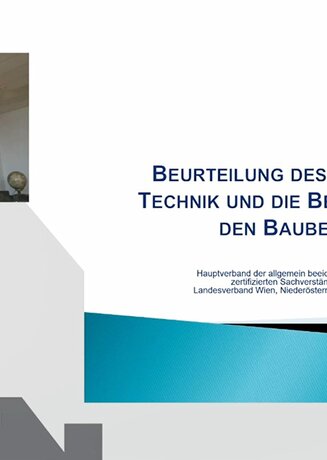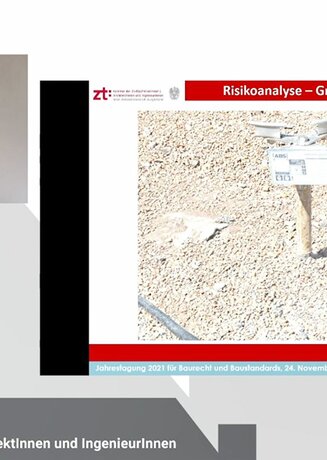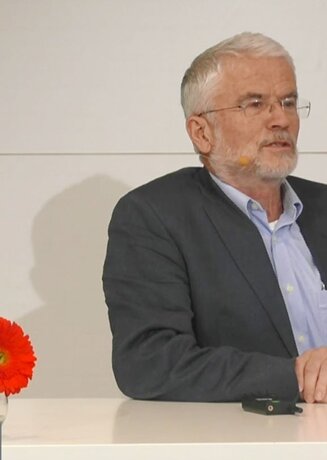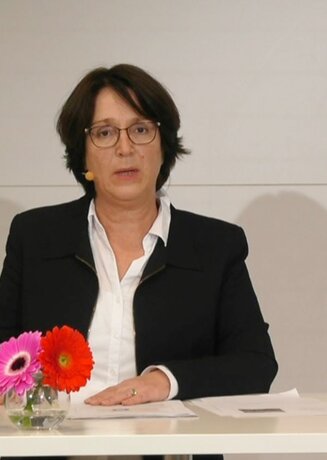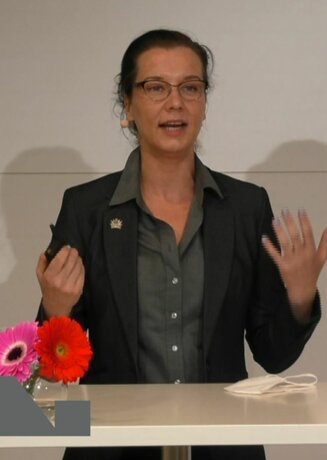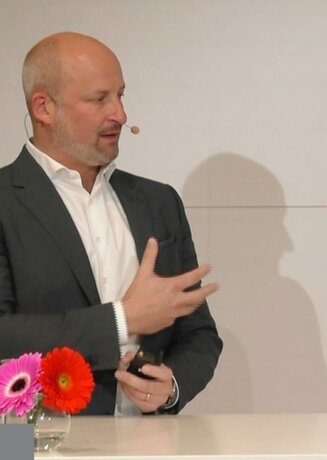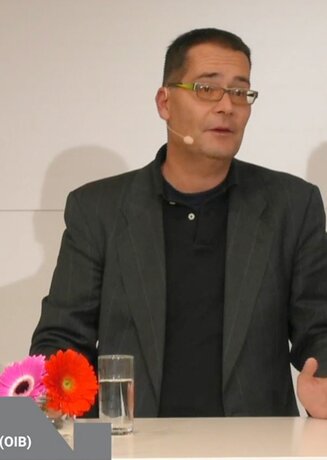4th Annual Conference for Construction
On 24 November 2021, as part of the 2021 Annual Conference for Construction Law and Construction Standards, the construction sector ran a facts check under the heading "Making deregulation and innovations possible". The specialist conference was organised online by Austrian Standards in collaboration with the Österreichische Bauzeitung journal, the Construction Agency of the Austrian Economic Chamber and the Chamber of Civil Engineers for Vienna, Lower Austria and Burgenland.
The pandemic has seen delivery bottlenecks, rising material prices and a general sense of uncertainty become an everyday reality in the construction sector. The climate crisis is adding fuel to the fire in this volatile environment. Are building regulations fit for current developments?
Sonja Meßner, Editor-in Chief at Österreichische Bauzeitung, guided the participants through the agenda. Over 230 delegates registered for the event.
Dialogforum Bau Österreich: working together to further simplify building regulations
Dialogforum Bau Österreich - the Austrian Construction Dialogue Board – continues to provide an important platform for the simplification of building regulations, where experience-based reports can be submitted and addressed by a group of construction experts, the Committee for Building Regulations.
Stefan Wagmeister, Deputy Director Standards Development at Austrian Standards, kicked off with an overview of the most pressing matters: "How can we develop sustainable concepts and put them into practice? How can we reduce liability risks and avoid duplications in the rules and standards? Planning certainty but also innovation are always a matter of simple building regulations. The focus here must be on the guiding principle of creating 'as few rules as possible but as many as required."
Karl Glanznig, Managing Director of Glanznig Bau GmbH and Chairman of the Committee for Building Regulations, added: "Building regulations and standards need to be affordable in practice, legible and clearly formulated. This was the case in the past and it needs to remain so going forward. The next generation needs to learn how to work with standards and specialists need to be continually educated in this field. They have a certain responsibility to remain up to speed with the latest developments."
State of the art: clear and detailed contracts are needed
While the current version of building regulations is without a doubt the version applicable at any one time, the term "state of the art" doesn't just cause conflicts in the world of building contracts. This became clear from the keynote speeches given on assessments of the state of the art and the significance of these to the construction sector.
Kurt Peter Judmann, Sworn and Certified Expert and Civil Engineer: "'State of the art' should not be confused with 'codes of practice'. State of the art is not widely defined. Clear specifications as to the precise information intended are therefore urgently needed in contracts."
Thomas Eilenberger-Haid, Judge at the Commercial Court in Vienna, also agreed: "There is no valid legal definition of 'state of the art'. Standards are not always legally binding and may only be used as a rule to a limited extent. If more precise details are not agreed on in the contract, only experts can clarify in an individual case whether the work is state of the art or not. It is up to the clients to produce a contract with the appropriate level of detail at the outset."
In his presentation, Erich Kern, President of the Chamber of Civil Engineers for Vienna, Lower Austria and Burgenland, underlined the significance of risk assessments for safety standards in the construction industry: "One hundred percent safety doesn't exist, so a limiting risk is always defined. In practice, the applicable standards and regulations generally reflect the state of the art."
Sustainable construction needs innovation and a new framework
Peter Maydl from the Institute of Technology and Testing of Building Materials (TVFA), Graz University of Technology, emphasised that innovations are not just required but also need a new framework. He introduced Committee 271 "Sustainability of Structures" recently founded at Austrian Standards.
"Current developments, like the 'Green Deal' from the European Commission or the 'New European Bauhaus Initiative 2021', need harmonious construction regulations and methods of evaluation, rules for product declarations and principles for building certification. There is a wealth of information available that we now need to communicate to end consumers. A great deal of action is also needed when it comes to further education in sustainable construction."
Hurdles and levers for a circular economy in the construction industry
Brigitte Karigl, Technical Manager Circular Economy at the Environment Agency Austria, explained: "Sustainable building that can be part of a closed-loop economy starts with integral planning. However, it is up to the builders to mandate such work." Karigl believes that one hurdle to sustainable building lies in the availability and logistics of recyclable building materials. Karigl remained convinced: "In order to be able to use buildings as material stores, the building materials would have to be recorded and distributed on a daily basis". The rising prices of land are also accelerating premature demolition projects, especially in cases where existing buildings cannot be renovated or are very hard to renovate. Technological hurdles and cost-intensive processes are further impediments to a circular economy in the construction industry. She pointed to levers firstly in technological solutions, such as building information modelling (BIM), but also in new business models, like the leasing of components. She believes that true-cost pricing, comprehensive analyses of potential for reusing components and consideration of sustainability criteria in public tenders could also spur on the circular economy in the construction industry.
Anna-Vera Deinhammer, Project Coordinator for the Circular Economy (Construction) at the City of Vienna, confidently stated: "The City of Vienna has set itself the goal of moving away from the consumption of finite resources. This is not an insurmountable task. Processes need to change and integral planning on the part of the waste industry must become standard. Maintenance and renovation are the preferred options to tearing down and building afresh." Deinhammer also underlined the importance of digitalisation and the sharing of information – about the recyclable parts and materials available, for example.
Thomas M. Kasper, Head of the Waste Management Division / Process Development Department at the PORR Group and President of the Austrian Construction Materials Recycling Association (BRV) continued in the same vein: "We need to really deal with material flows. And there are several legal issues here. Recycling falls somewhere in between legislation governing products, construction and waste. Waste legislation is addressed at national level, whereas building legislation is a matter for the individual provinces. We need to move recycling processes, products and materials from waste legislation into construction legislation."
Building regulations in flux – OIB Guideline 7
Robert Stadler from the Austrian Institute of Construction Engineering (OIB) stressed that building regulations need to be made fit for the future: "Item 7 of the EU Construction Products Regulation 305/2011 stipulates a sustainable use of natural resources. But there are no more detailed EU specifications on how to do this in practice." Given the need to harmonise existing building regulations, Stadler believes that we can expect detailed information in 2027 in the corresponding OIB Guideline 7.
Behaviour needs to change too
All the participants agreed that the climate and energy transition will only succeed if it happens hand-in-hand with a significant reduction in consumption – covering everything from ground use to consumption of raw materials and energy.
More on the topic
The 2021 Annual Conference for Construction Law and Construction Standards was recorded – you can view the videos here:
Download presentations
- Präsentation "Beurteilung des Stands der Technik" von Kurt Peter Judmann (PDF - 0.3 mb)
- Präsentation "Beurteilung des Stands der Technik" von Thomas Eilenberger-Haid (PDF - 0.8 mb)
- Präsentation "Risikoanalyse – Grundlage jeder Sicherheitsnorm" von Erich Kern (PDF - 3.1 mb)
- Präsentation "Nachhaltigkeit von Bauwerken" von Peter Maydl (PDF - 0.3 mb)
- Präsentation "Hebel und Hürden für die Kreislaufwirtschaft" von Brigitte Karigl (PDF - 1.2 mb)
- Präsentation "Kreislaufwirtschaft im Bausektor" von Anna-Vera Deinhammer (PDF - 1 mb)
- Präsentation "Kreislaufwirtschaft im Bausektor" von Thomas Kasper (PDF - 1.5 mb)
- Präsentation "OIB-Richtlinie 7 – Nachhaltige Nutzung der natürlichen Ressourcen" von Rober Stadler (PDF - 1 mb)
Mehr zum Dialogforum Bau Österreich
